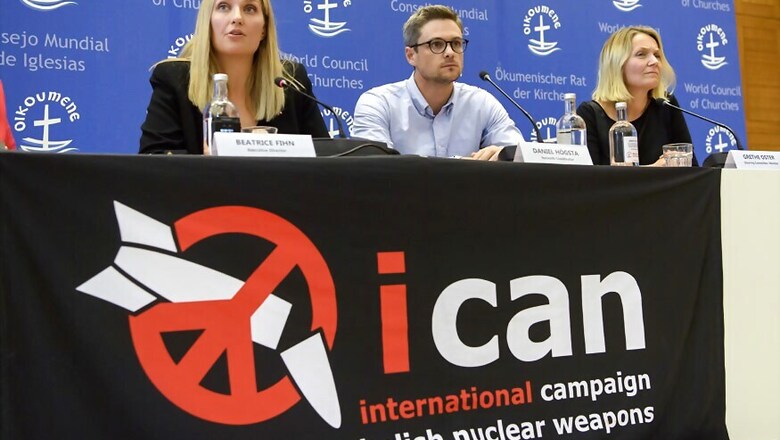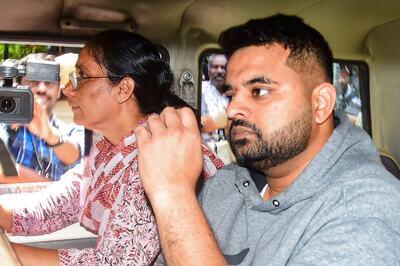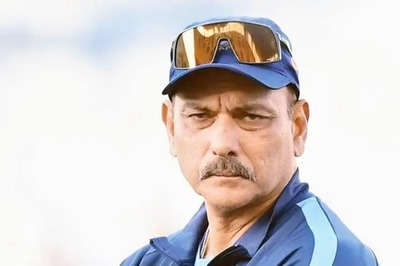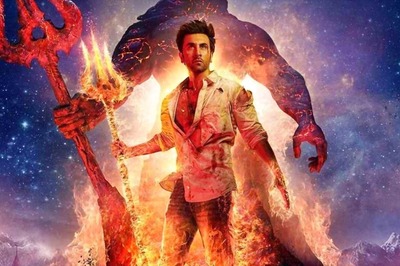
views
New Delhi: The International Campaign to Abolish Nuclear Weapons (ICAN) on Friday won the Nobel Peace Prize for its work to draw attention to the ‘catastrophic humanitarian consequences’ of any use of nuclear weapons and for its ground-breaking efforts to achieve a treaty-based prohibition of such weapons. The Nobel for the forum, which was instrumental in pushing through the Treaty on the Prohibition of Nuclear Weapons (TPNW) in July this year has given fresh impetus to its partner organizations in India and Pakistan, both nuclear-armed states, to write to Prime Ministers Narendra Modi and Shahid Khaqan Abbasi to work towards eliminating their respective stockpiles.
Since its inception, ICAN has partnered with 468 Non-governmental organization (NGOs) in 101 countries. It has three partner-organizations each in India — Indian Doctors for Peace and Development (IPDP); Indian Institute for Peace, Disarmament and Environmental Protection (IIPDEP); and Popular Education and Action Centre (PEACE) — and in Pakistan — Community Motivation & Development Organization (CMDO); Pakistan Doctors for Peace and Development (PDPD); and Alliance for Peace and Disability Rights (APDR).
Dr Arun Mitra, Ludhiana-based co-president of IDPD, told News 18, “Nobel Peace Prize is a recognition of constant efforts of the forces of peace who worked hard and became instrumental in getting the TPNW through in the UN General Assembly on July 7, 2017. The campaign was started nearly a decade ago, in which many peace organizations worked together... It is now time that the nuclear weapon states come forward and sign the treaty.”
The Indian subcontinent, with two of the world’s eight nuclear-armed countries, has often been described as one of the most dangerous places in the world. While the eyes of the world are currently trained on the US-North Korea spat over the latter’s military nuclear program, rising tensions between India and Pakistan over the last year have also raised fears of a potential war.
“ICAN has partner organizations in 101 countries but those of us in India and Pakistan have a particularly difficult job to do. After all, we are operating out of nuclear-armed neighbor states that are at each other’s throats half the time. Our job is to lobby with two governments with nukes that distrust each other. That is why we have decided to co-author a letter with our friends in the PDPD, a Karachi-based organization, addressed to the Prime Ministers of both India and Pakistan. We plan to send the letter to both of them on Saturday,” he said.
The letter, a copy of which is with News 18, reads, “As medical professionals we are deeply concerned over the catastrophic health crises that would follow in the event of nuclear fallout. Indian Doctors for Peace and Development (IDPD) and Pakistan Doctors for Peace and Development (PDPD) both affiliates of International Physicians for the Prevention of Nuclear War (IPPNW), recipient of Nobel Peace Prize in 1985 have been campaigning for total nuclear disarmament, check on proliferation of small arms, solution to all the issues through mutual dialogue and end to violence of all kinds.”
The letter further appeals the Prime Ministers to focus, instead, on the large-scale poverty in both nations. It says, “We are poor countries and need to cut down on the arms race significantly to improve the life style including health and education of our people. It is therefore imperative that both Pakistan and India not only sign the treaty but also convince other nuclear weapon possessing countries to be part of this multilateral global effort for abolition of nuclear weapons.”
Currently, there are eight nations in the world that possess nuclear weapons. These are the United States of America, Russia, the United Kingdom, France, China, India, Pakistan and North Korea. Israel, too, is believed to possess nuclear weapons, though the middle-eastern nation has not officially declared such. India, Pakistan and North Korea are not signatories to the Nuclear Non-Proliferation Treaty (NPT).
India had refused to be a part of it in the 1960s, claiming the NPT regime to be discriminatory. India said it created a world of “haves” and “have-nots”. In 2006, after a round of negotiations between then US President George W Bush and Prime Minister Manmohan Singh, India decided to separate its civilian and military nuclear programs. Pakistan, too, has refused to become a part of the NPT.
On Thursday, Indian Air Force (IAF) Chief BS Dhanoa had on Thursday assured the nation that “if the need arises”, the IAF had the capability to disarm Pakistan’s nuclear arsenal by conducting what he called a “full-spectrum” operation. This triggered an angry reaction from Pakistani Foreign Minister Khwaja Asif who in Washington on Friday warned that if India launched surgical strikes against Pakistan or targeted its nuclear installations, “nobody should expect restraint from Islamabad”.




















Comments
0 comment